
Nature
17:09, 02-Nov-2018
Learn about the mysterious mandarin duck in New York's Central Park
Updated
17:07, 05-Nov-2018
By Li Yunqi
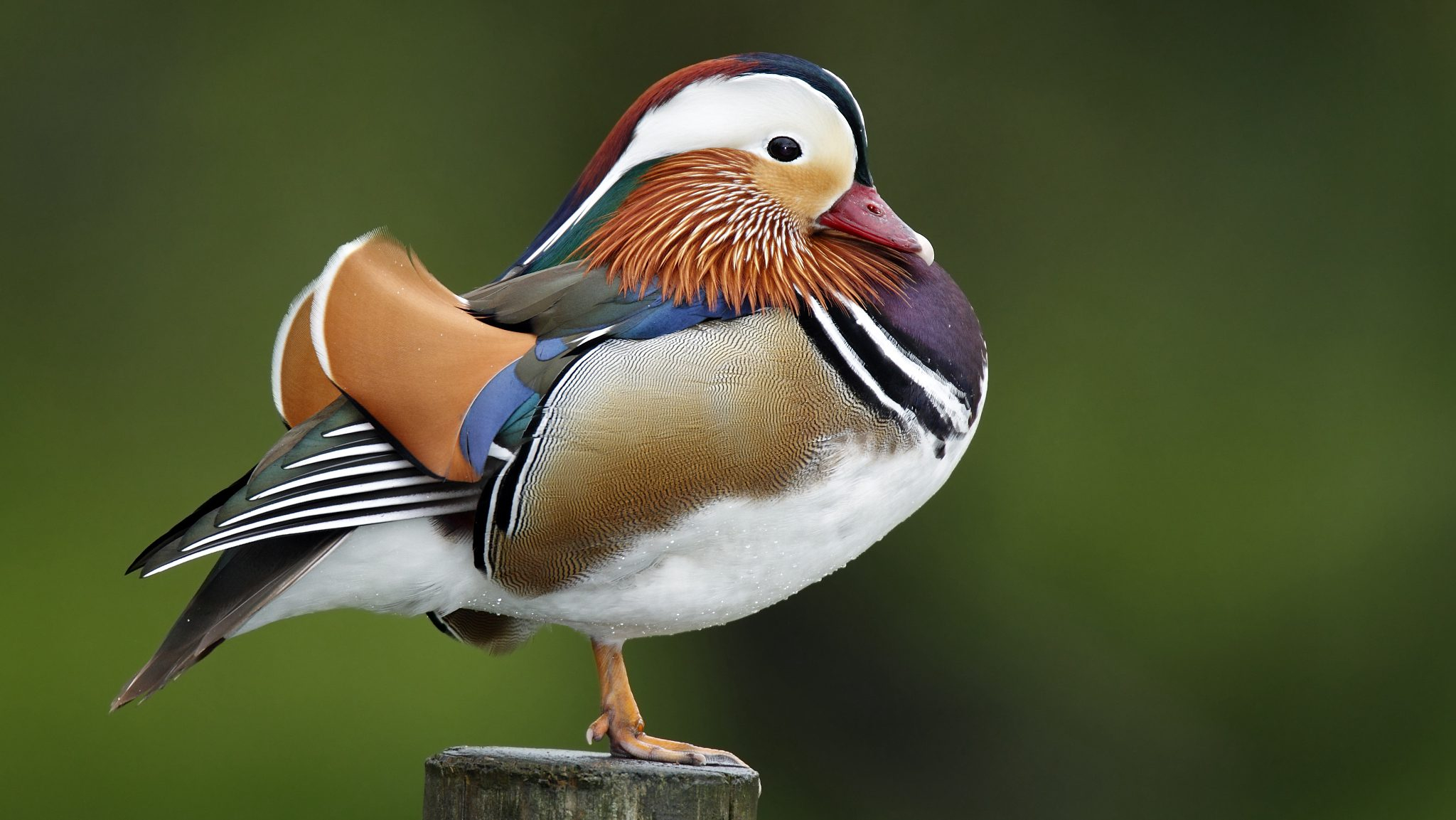
In his recent post, David Barrett, the owner of the Tweeter account “Manhattan Bird Alert”, announced that a mandarin duck has been spotted in Central Park's pond, stirring up discussions in New York City.
This glamorously colored duck is native to eastern Asia, and it remains unknown how it manages to make its surprising appearance in the Central Park's pond.
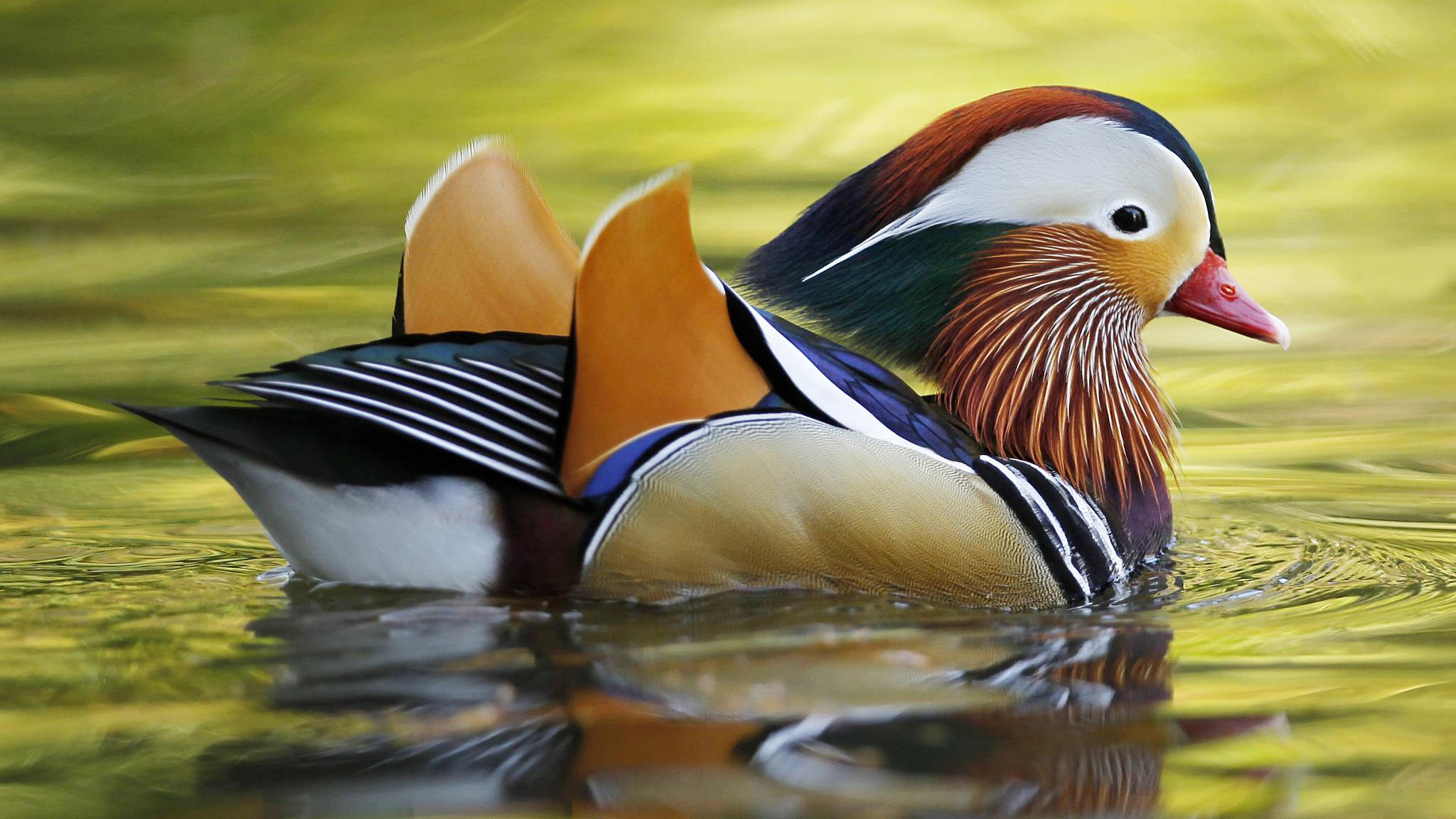
A beautiful mandarin duck is paddling in the water. /VCG Photo
A beautiful mandarin duck is paddling in the water. /VCG Photo
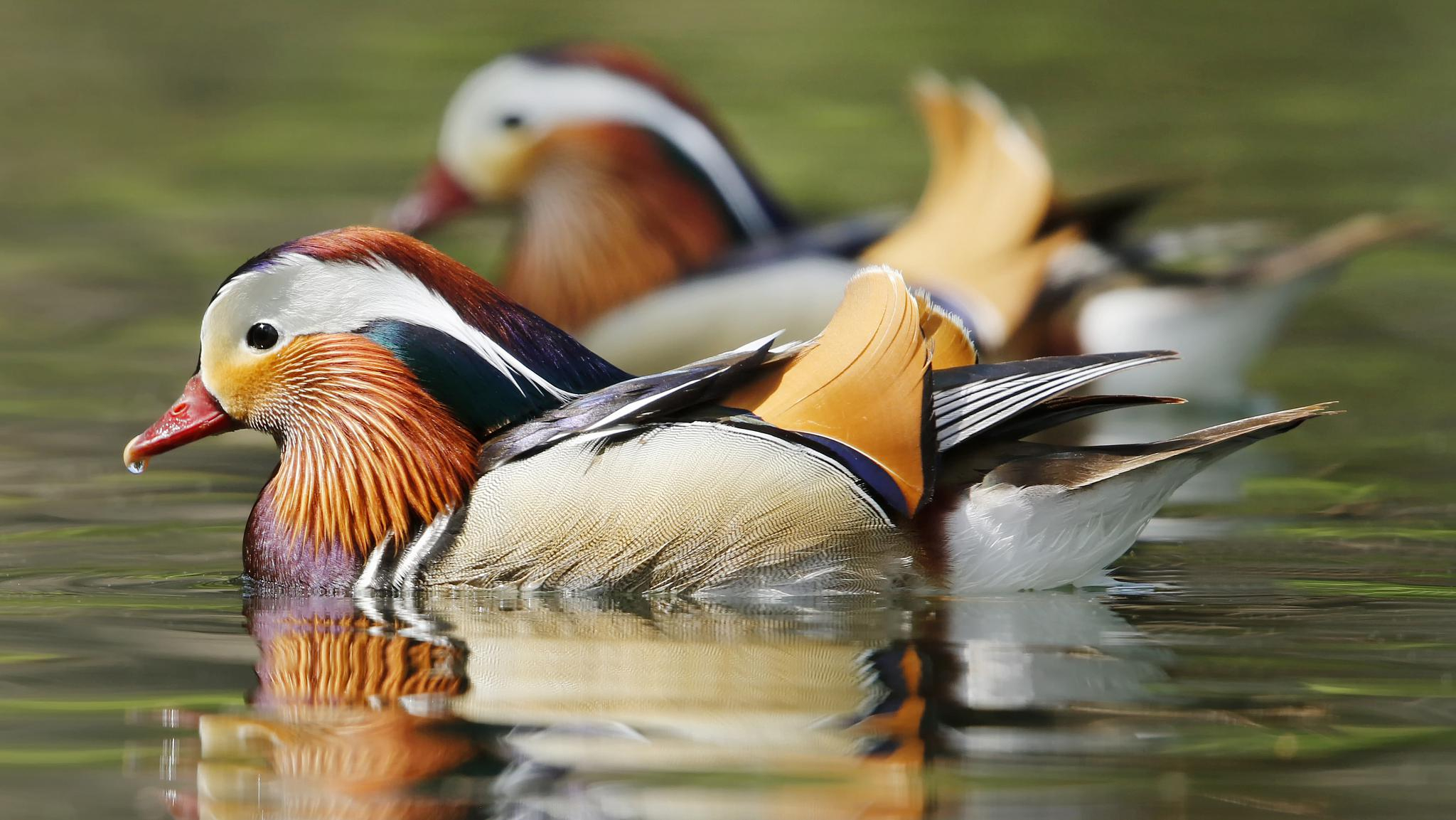
Male mandarin ducks have stunning pluamge. /VCG Photo
Male mandarin ducks have stunning pluamge. /VCG Photo
Mandarin ducks are very common in China and Japan, and they are known for the males' vibrantly colored plumage. However, while the males' stunning plumage becomes a long-lasting inspiration for Asian artists throughout the history, the female mandarin ducks are surprisingly plain in their appearances.
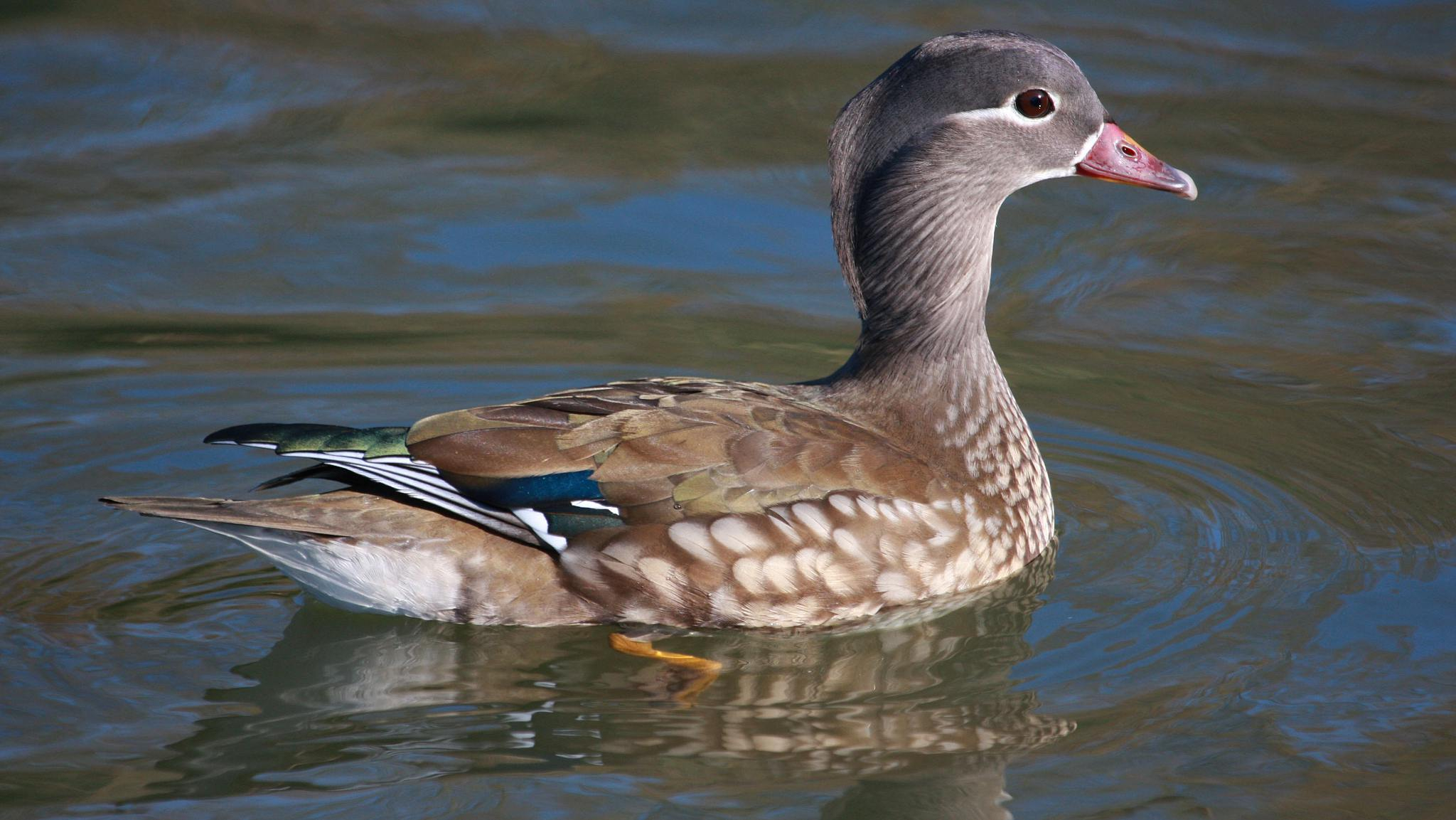
A female mandarin duck /VCG Photo
A female mandarin duck /VCG Photo
The mandarin ducks appear in pairs throughout the mating season. Therefore, in China, the mandarin ducks have long been regarded as symbols for love and fidelity. The truth is for different mating seasons mandarin ducks will form different pairs, just like most ducks do.
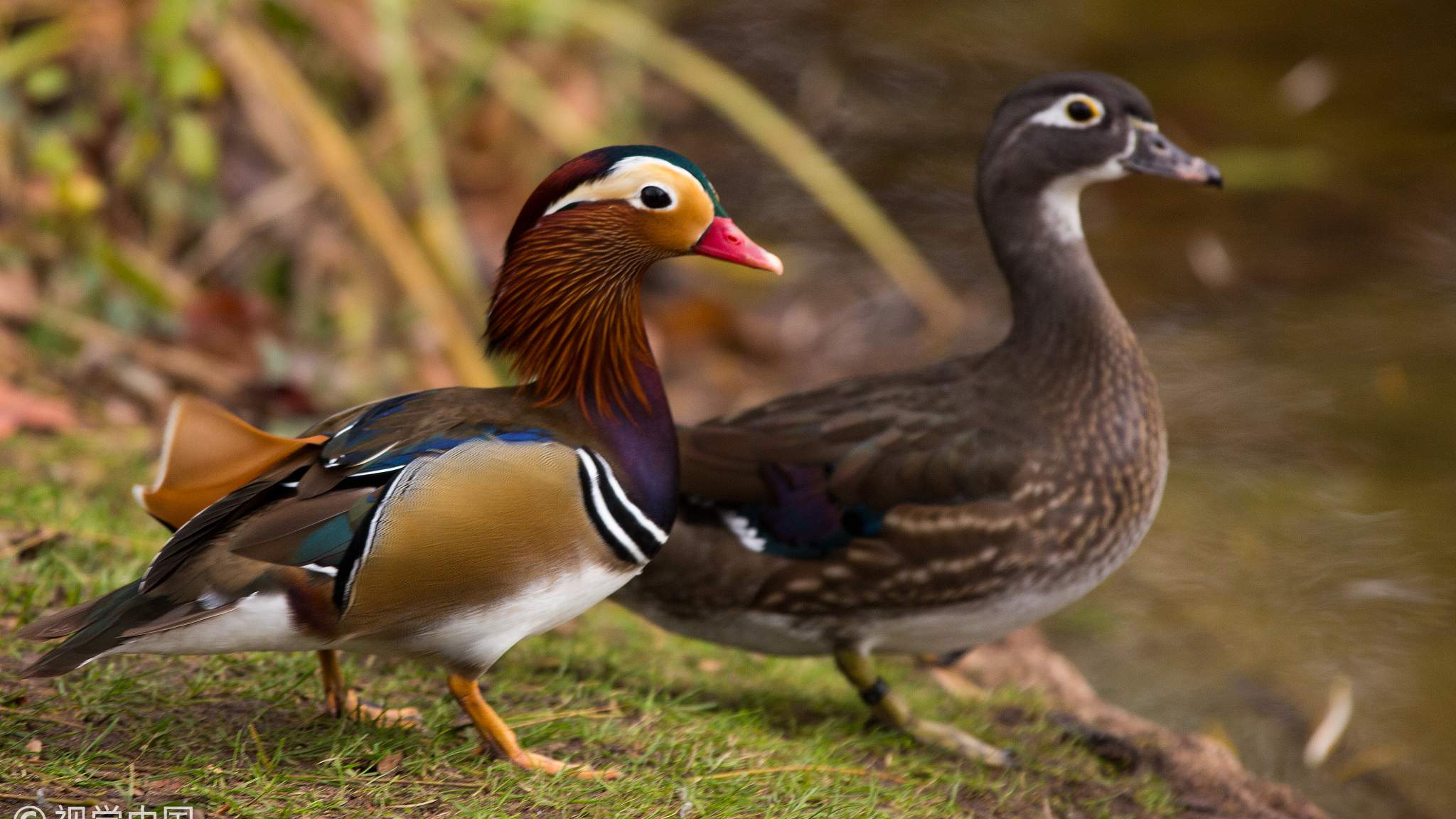
A pair of mandarin duck gazing at the lake /VCG Photo
A pair of mandarin duck gazing at the lake /VCG Photo
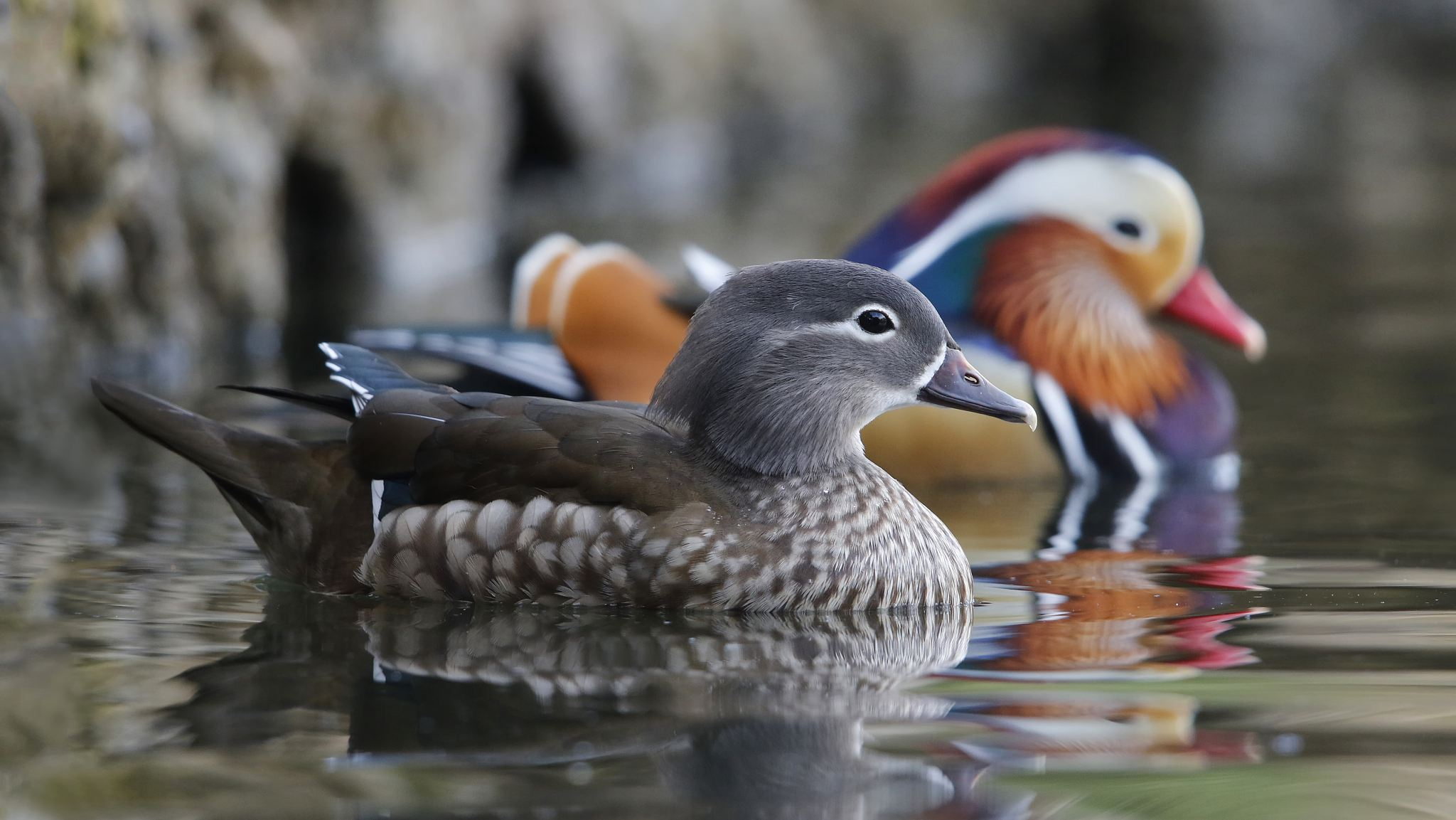
A mandarin duck couple is swimming together. /VCG Photo
A mandarin duck couple is swimming together. /VCG Photo
The mandarin ducks are good at flying and love to perch in trees, and females usually lay eggs in holes or cavities in tree trunks. The male guard the female during brooding, but leave before the ducklings are hatched. When ducklings are hatched, the mother will fly down the tree and encourage the ducklings to leave their nest by jumping off the branch.
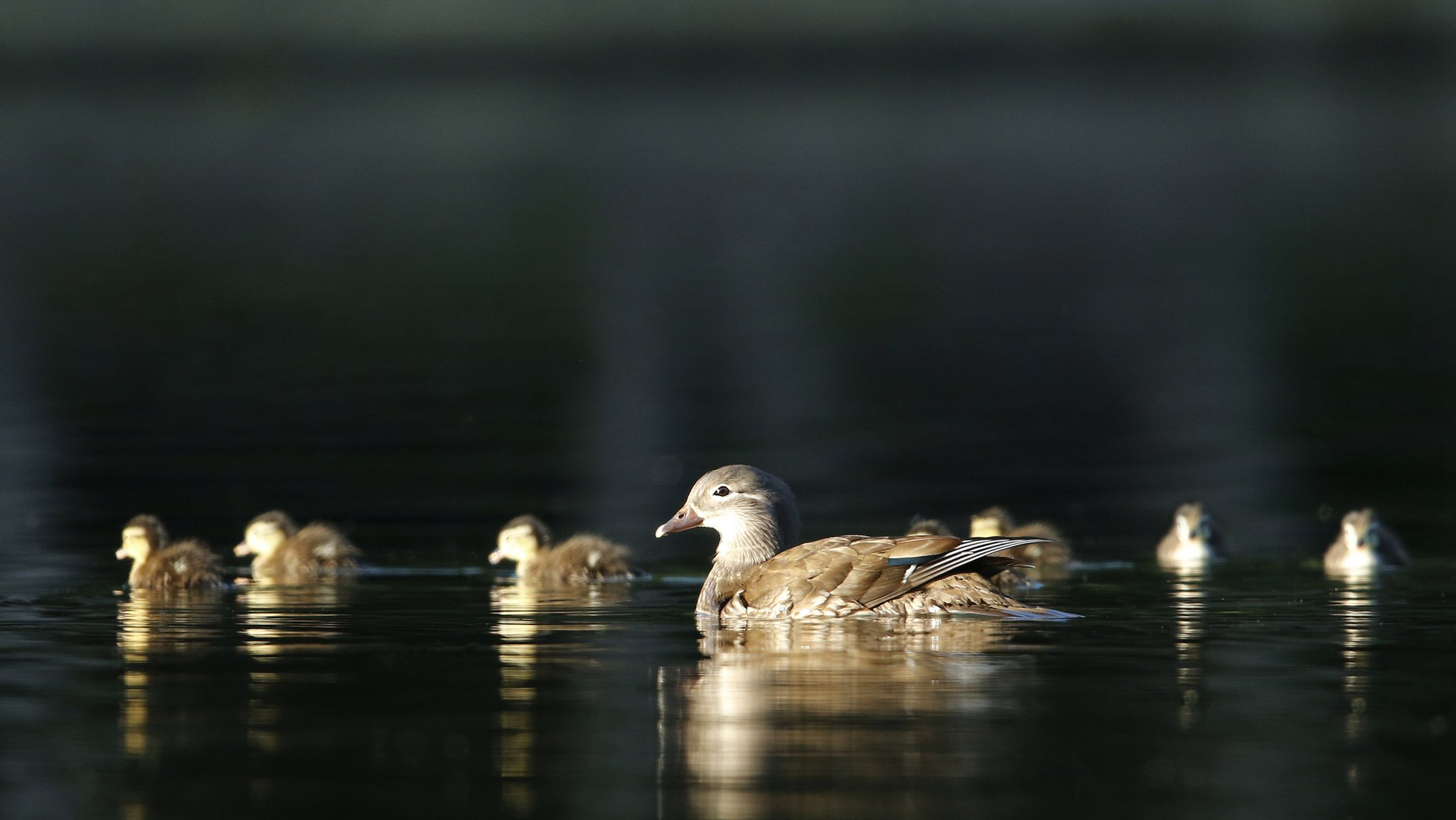
A mother mandarin duck and her ducklings /VCG Photo
A mother mandarin duck and her ducklings /VCG Photo
Unluckily for the mandarin duck in Central Park, since there is no female mandarin duck in the park, and it cannot cross-breed, it is very likely that it will end up alone in the Park for the rest of its life if no individual or institution comes to claim for it. It is a sad ending for a duck with so much romantic connotations attached to its fame.

SITEMAP
Copyright © 2018 CGTN. Beijing ICP prepared NO.16065310-3
Copyright © 2018 CGTN. Beijing ICP prepared NO.16065310-3